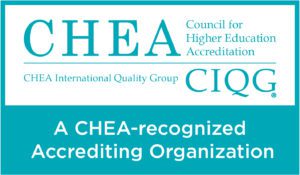
(ISP) برنامج الخدمات الدولية
يقدم برنامج الخدمات الدولية التابع لمجلس الاعتماد للتعليم الصيدلي برنامجًا للحصول على درجة
احترافية – الاعتماد الدولي والاعتماد المسبق الدولي ، والاستشارات ، والتدريب لأصحاب المصلحة في جميع
أنحاء العالم الذين يسعون للحصول على إرشادات تتعلق بضمان الجودة والنهوض بتعليم الصيدلة.
تدعم الخبرة ووجهات النظر العالمية وموارد الموظفين والعمليات الرسمية داخل ISP أصحاب المصلحة
الدوليين لتعزيز تعليم الصيدلة وجودتها في بلدانهم. تأسس ISP في يناير 2011.
Revision of the International-Accreditation Quality Criteria
The ACPE Board of Directors, International Commission, and International Services Program (ISP) Staff are beginning work on the first major revision of the Quality Criteria (standards), which will be adopted later as the International-Accreditation Quality Criteria. To view the full full process and timeline for the revision, please click here.
To initiate the public comment process, ACPE is issuing a “Call for Comments” to stakeholders. All stakeholders are welcomed to provide comments, suggestions, and edits. A link to a survey instrument, which is organized by the 26 Quality Criteria, can be accessed here.
To view a list of all programs outside of the United States that have been granted Certification Status by ACPE, please click one of the following buttons.
International Commission
ISP Advisory Group (ISPAG): 2022 – 2023 Term
International-Accreditation of Professional Degree Programs
ACPE ISP Quality Criteria may be voluntarily adopted by degree programs in pharmacy outside of the United States.
International-Accreditation Quality Criteria
Quality Criteria for International-Accreditation of Professional Degree Programs in Pharmacy
Adopted: June 17, 2022; Released: January 1, 2023
Glossary
Glossary For ISP International-Accreditation and International-Preaccreditation Documents
Policies and Procedures
The ACPE Board has adopted policies and procedures that apply to the International-Accreditation and International-Preaccreditation of professional degree programs in pharmacy that are based outside the United States of America (USA) and its territories; namely, Puerto Rico, Guam, American Samoa, and the Virgin Islands.
Application for International-Accreditation:
ACPE accepts applications for International-Accreditation for programs that are a minimum of four academic years in length. A summary of the steps in the application process and associated documentation, forms, flowcharts, and timelines are available for download.
Guidance:
Forms and Templates
Deadlines for Submission of Application for International-Accreditation*
Application for International-Preaccreditation:
ACPE accepts applications for International-Preaccreditation for programs that are a minimum of four academic years in length. A summary of the steps in the application process and associated documentation, forms, flowcharts, and timelines are available for download.
Guidance
Forms and Templates
Deadlines for Submission of Application for International-Preaccreditation
Maintaining International-Accreditation:
Forms and Templates:
Interim Reports:
Substantive Change(s) Reports:
Annual Reporting:
ACPE Logo Guidelines:
Fees
The fee structure for ACPE international services and related resources are available below.
ACPE has a rich history of engagements and promoting information exchange internationally among organizations and agencies involved in the quality assurance of pharmacy education.
Communications
Hosting International Visitors
ACPE has hosted visitors from around the world, and has provided assistance to many countries in their efforts to establish or develop their own quality assurance systems for pharmacy education. If you are interested in visiting ACPE, please e-mail the ISP Department at [email protected].
Consultation
ACPE offers consultation in a broad range of areas related to quality assurance and advancement of pharmacy education, including:
Consultation may also be provided in broader areas of care delivery and pharmacy practice. ACPE engages appropriate experts from the United States and other countries for each consultation.Workshops
ACPE offers and conducts training and workshops on topics such as preparation of self-studies, evaluator training, assessment, curricular development, continuing professional development, and standards development. Training programs may also be customized to meet the needs of global stakeholders.

The SMART Pharmacist Program is a sustainable, evidence-based educational initiative, designed for national professional institutions, associations, and chambers to foster changes in the pharmacy profession. To learn more, visit the SMART Pharmacist Program website: www.smartpharmacistprogram.org
*****************************************************************************************************************************************************
COVID-19 UPDATE
Partners of the SMART Pharmacist Program: In this very unusual and unpredictable time of pandemic, we would like to connect with all of you, in different countries, all over the World and express our support.
We would also like to recognize and thank our SMART Pharmacists who are serving patients at the front line. We have prepared a short video message that we would like to ask you to forward to all of them to keep the motivation and sustainability of the Program.
Yours truly,
Arijana Mestrovic and Mike Rouse
Complaints
ACPE has an obligation to assure that any program that holds an International-Accreditation Status remains compliant with the Quality Criteria or is making progress towards achieving compliance at an appropriate pace, and that the School conducts its affairs with impartiality, non-discrimination, honesty, and frankness.
Complaints from Institutions, students, academic staff, or the public against a Professional Degree Program with International-Accreditation Status or Institution housing a Professional Degree Program with International-Accreditation Status must be based upon the fact that such Program or Institution is not in compliance with Quality Criterion/Criteria or is not making progress towards achieving compliance at the appropriate pace, or is not in compliance with the International-Accreditation and International-Preaccreditation Policies and Procedures, as established, from time to time, by ACPE.
Complaints must be submitted in writing to the ACPE office, must provide a detailed description of the complaint and its relation to Quality Criteria or the International-Accreditation Policies and Procedures, and must provide direct contact information of the complainant(s). Requests for confidentiality by the complainant shall be respected to the extent that any identifying information is not necessary for the resolution of the complaint.
Anonymous complaints pertaining to International-Accreditation matters are retained and, depending on circumstances and the severity of the complaint as determined by the ACPE Executive Director, may be forwarded to the Dean of the affected Professional Degree Program for a response. Where a complainant has threatened or filed legal action in a court of law or before a governmental agency against a Program or Institution housing said Program, ACPE reserves the right to hold such complaint in abeyance until after the later of a final judgment by a court of law or governmental agency or finalization of any appeal of such judgment.
ACPE will proceed expeditiously in the investigation and resolution of complaints in a manner that is fair and equitable to all parties. The Executive Director, or his/her designate, shall have the authority to: (i) review the complaint in order to determine relevance to the Quality Criteria, policies, or procedures; (ii) dismiss a complaint if it is determined that such complaint has no merit or is outside the scope of ACPE International-Accreditation activities; (iii) forward relevant complaints to the Dean of the school for a response to ACPE; and (iv) conduct any further investigation deemed necessary to promptly determine the facts surrounding the issue and the validity of the complaint. ACPE shall diligently investigate and resolve complaints in a timely manner, taking into consideration all parties involved, the severity and complexity of the allegations, and pursuant to any legal obligations.
If, on the basis of such investigation, after notice to the school and opportunity for response from the School, the Executive Director finds a complaint to be extremely serious in nature, charging egregious conduct that may warrant an Adverse Action by ACPE, or involve an interpretation that the Executive Director believes should be made by the Board, the complaint will be submitted to the Board for consideration at the next regularly scheduled meeting. Where the Board finds that a Program or School has violated the Quality Criteria, engaged in unethical conduct, or that its integrity has been seriously undermined, the Board will either:
(a) request that the School show cause, within a stated time period, as to why an Adverse Action should not be taken; or
(b) in extreme cases, immediately discontinue its relationship with the Program by denying International-Accreditation or International-Preaccreditation or withdrawing the offending Program’s International-Accreditation Status.
A record of complaints regarding a specific School or Program is maintained in perpetuity at the ACPE office for future consideration. The complaint file will be reviewed by Staff members as a component of the evaluation visit process. Evaluation teams will be informed regarding any open complaints against the Program under review. Information provided to the evaluation team will include the following for any open complaint: (1) the nature of each complaint; (2) the process used to review the complaint; and (3) the status of the complaint. Any complaints received since the prior evaluation visit and the related investigative materials will be provided to the members of the International Commission and Board as a component of the review process.
For more details regarding ACPE’s Complaints Policy and Procedures, please visit the relevant section of the International Services Program Policies and Procedures manual.
If you wish to file a complaint, please complete the ACPE Complaint Form found here.
Contact Us
To submit a request for information, submit the form below:


